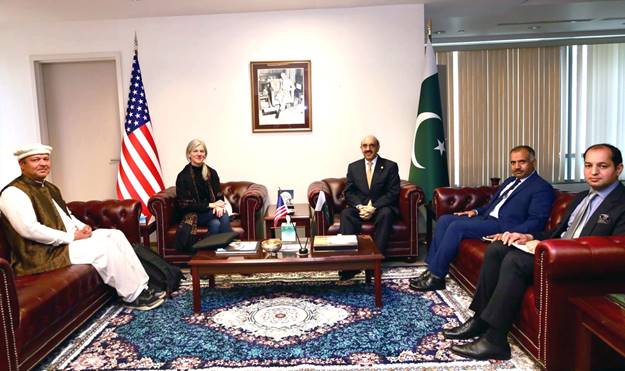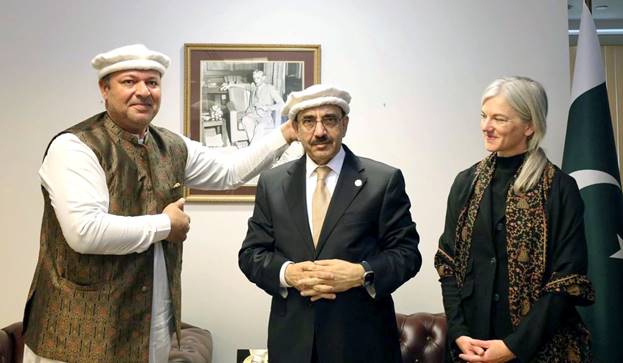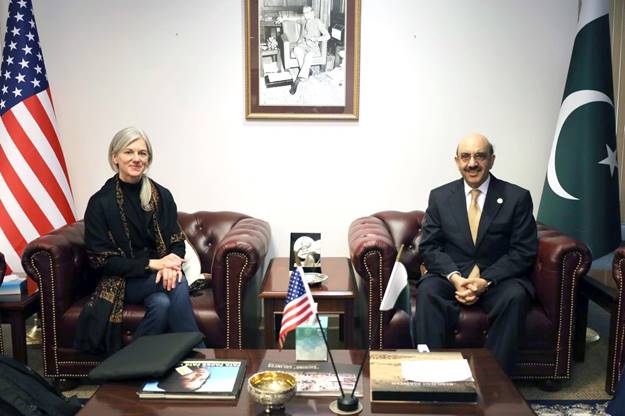


“You are a symbol of friendship between the people of Pakistan and the United States,” Ambassador Khan told Walsh, assuring her and her team of all possible assistance in the continuation of her mission in the northern areas of Pakistan
Amb Masood Khan Praises Iqra Fund’s “Inspiring” Mission Educating Students in Northern Pakistan
By Elaine Pasquini
Washington: “If a nation educates all children, it will thrive,” is a driving view of the Boseman, Montana-based Iqra Fund, co-founded in 2011 by Genevieve Walsh to educate children in the remote, mountainous regions of northern Pakistan. The Fund is working “to empower local communities by imparting quality education to all the students, especially girls,” Walsh said in a May 10, 2024, meeting with Ambassador Masood Khan, Pakistan’s top diplomat in the United States. “If girls have an education, communities thrive, nations flourish, and overall planetary health improves.”
Iqra Fund has educated some 5,000 first-generation students, and 70 first-generation college and university women have received scholarships from the Fund, Walsh said.
Since 2011, she noted, Iqra’s strategic partnership with the Pakistani government to transform non-functioning government schools with renewed infrastructure has resulted in the establishment of 20 village schools engaging 234 local women of the remote region. The Fund has hired 94 teachers who have been trained and mentored as school and community leaders.
Walsh, Iqra Fund’s CEO, first visited Pakistan in 2007, two years after the devastating earthquake that killed 80,000 people in the Pakistan-administered region of Kashmir, the North-West Frontier Province (called Khyber Pakhtunkhwa after 2010) and parts of Afghanistan and India. Inspired by a 13-year-old girl named Iqra, who had set up a tent school to teach the surviving children in the aftermath of the earthquake, Walsh named her organization “Iqra Fund.” She aimed to establish high-quality self-sustaining school systems to empower the remote northern area communities through education.
The mountainous region is home to large glaciers, making it particularly vulnerable to the effects of climate change. Without education, the population is less equipped to deal with the global climate crisis.
In addition, Walsh briefed the ambassador in detail about her work in the Basha Valley in Gilgit-Baltistan and outlined her priorities in Tissar village, Beisil, and Doko Sabiri. Praising Walsh’s noble mission to equip students with “steal armor to fight the battle of life,” Khan asserted that her mission was truly inspiring.
“You are a symbol of friendship between the people of Pakistan and the United States,” Ambassador Khan told Walsh, assuring her and her team of all possible assistance in the continuation of her mission in the northern areas of Pakistan.
(Elaine Pasquini is a freelance journalist. Her reports appear in the Washington Report on Middle East Affairs and Nuze.Ink.)

